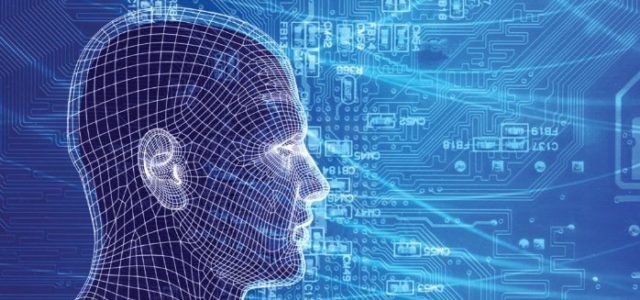Definitions:
The Fourth Industrial Revolution:
Per the WEF: A Digital Revolution which fuses technologies to blur the lines between the physical, digital, and biological spheres.
Transformation: Per the OED: A complete change in character , nature , etc.
We are early into 2016 and the latest hype-storm has erupted with a fury across the conference circuit (beginning w/Davos), in Government chambers, and across media outlets. It’s the notion of a “Fourth Industrial Revolution”. Everyone seems to be latching onto it with full force (could this be due either to El Nino or the fact that it is a Leap Year?) and yet few seem to be able to clearly articulate what it is. As if we had not heard already everything noble or noteworthy about the virtues of Digital Transformation, we are now being subjected to its big brother. As evidenced by recent Ministerial rhetoric in the UK, the Fourth Industrial Revolution has become central to their own notion of a “Digital Revolution” for the country. And yet, I can’t help thinking that beyond the headlines & platitudes that nobody really knows what they are talking about.
The term Fourth Industrial Revolution has been used for more than 75 years now and is an attempt to capture to state of flux being experienced across many sectors of life (technology, government, economics, education, etc.) as we move into a new paradigm which fuses the Physical, Digital & Biological into a force to be reckoned with in the coming decades. It envisions AI, drones & other cyber-physical systems as part of normal life with technology dominating our world at every turn. At its core is the wave of innovation and experimentation that we have been riding for some time now, only now taken to new extremes. It is what we used to refer to as a Futurist Perspective, but what many now want to embrace as the logical next step forward (Revolutionary, not Evolutionary).
So what’s missing from this equation? Hint: It’s competent Leadership.
Regardless of the numerous advances in Technology on all fronts, we are still challenged by the shortcomings of the current (and perhaps the next as well) generation of Leaders. Whether in the Public or Private Sectors, we rely on people who are not only illiterate in most aspects of advanced & emerging technologies, but do not have a background in innovation or development that would allow them to be visionary (or strategic) in how to apply the constructs of the Fourth Industrial Revolution (nor Digital as far as I can tell) to create competitive advantage or disruptive benefits for consumers or citizens. This is why I bristle every time I hear one of these “Leaders” cheerlead the next great thing in tech or transformation.
We entered a world sometime ago that requires true literacy and competence in digital, data, analytics, AI, etc. by our Leaders in order to be effective in their roles. This extends to our oversight bodies as well (Boards & Regulators) who are just (if not more) ill-equipped to provide effective Governance and oversee Risks. The vast majority of Leaders today do not have the skills or acumen to Lead in the 21st Century and our next generation of Leadership candidates is woefully unprepared as well. The tradition of rising through the ranks based on success in finance, marketing, legal or in respect to ministerial appointments has produced Leaders who are hollow in terms of all things Digital, Data & Analytics, much less anything so futuristic as The Fourth Industrial Revolution. We have to stop focusing on the Feel Good aspects of all of this and hone in on creating competent & visionary Leaders who don’t have to rely on IT, Contractors or Consultants to do their jobs for them.
While the world focuses on Hack-a-thons, teaching children to Code and creating new (false) gods (Data Scientists, CDO’s, etc.), we are ignoring the need for educating & finely honing the next generation of Private & Public Sector Leaders. (Observation: They won’t be app start-up guys). We need to build into all aspects of Primary & Secondary education the rigors of technology exploitation and analytical competencies (e.g. Decision Science). Until we do so, all aspects of The Fourth Industrial Revolution will just be more talk coming from people who don’t know what they are talking about.
Note: An edited version of this posting appeared in the March 2016 issue of Information Age (UK) (www.information-age.com)
Article by channel:
Everything you need to know about Digital Transformation
The best articles, news and events direct to your inbox
Read more articles tagged: Featured, Fourth Industrial Revolution






